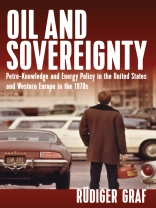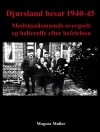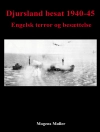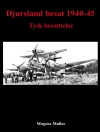In the decades that followed World War II, cheap and plentiful oil helped to fuel rapid economic growth, ensure political stability, and reinforce the legitimacy of liberal democracies. Yet waves of price increases and the use of the so-called “oil weapon” by a group of Arab oil-producing countries in the early 1970s demonstrated the West’s dependence on this vital resource and its vulnerability to economic volatility and political conflicts. Oil and Sovereignty analyzes the national and international strategies that American and European governments formulated to restructure the world of oil and deal with the era’s disruptions. It shows how a variety of different actors combined diplomacy, knowledge creation, economic restructuring, and public relations in their attempts to impose stability and reassert national sovereignty.
Innehållsförteckning
List of Illustrations
Acknowledgments
Abbreviations
Introduction: Sovereignty and Petro-Knowledge
Chapter 1. The World of Oil in the 1950s and 1960s
Chapter 2. Shortages, Forecasts, Prevention: Supplying the Western World with Oil
Chapter 3. The Global Communication of the ‘Arab Oil Weapon’
Chapter 4. The Politics of Sovereignty in the Energy Crisis: The United States
Chapter 5. West Germany within the World of Oil
Chapter 6. Oil Conferences: Global Interdependence and National Sovereignty
Chapter 7. Petro-Knowledge, the Perception of Limits and Sovereignty: Creating the Oil Crisis
Conclusion: Sovereignty in Crisis and the Oil Crisis in Contemporary History
Bibliography
Index
Om författaren
Rüdiger Graf heads the Research Department on Economic History at ZZF Potsdam. He received his doctorate from the Humboldt University of Berlin and has also taught at Ruhr-University, Bochum. He is the author of Die Zukunft der Weimarer Republik: Krisen und Zukunftsaneignungen in Deutschland 1918–1933 (2005) and co-author of Europäische Zeitgeschichte seit 1945 (2010), an introductory textbook on postwar European history.












